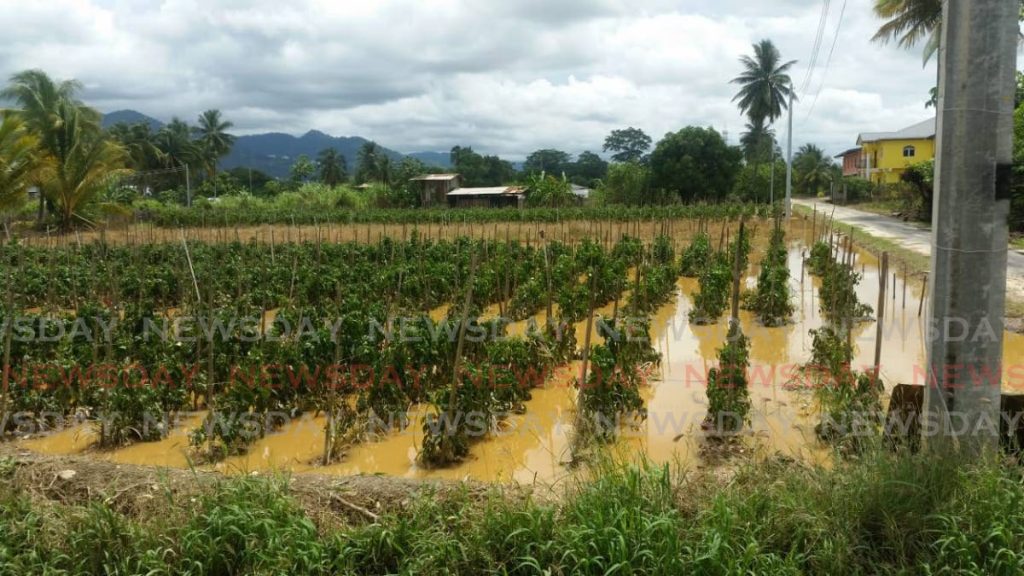[UPDATED] TT now has access to $7 million from UN Climate Fund

TRINIDAD AND TOBAGO now has access to approximately $7 million from the UN Green Climate Fund (GCF) to develop projects to build climate resilience.
The GCF is the world’s largest fund dedicated to helping developing countries reduce their greenhouse gas emissions and enhance their ability to respond to climate change and is managed by the Food and Agriculture Organisation (FAO).
Addressing a stakeholders workshop on Thursday at the Hyatt Regency, Joanne Deoraj, permanent secretary in the Ministry of Planning and Development, said the first project, entitled “Improving the monitoring system for climate change impacts on the agriculture sector in TT,” will run for the next 18 months.
Deoraj said the funds will be used especially in the agricultural sector, which has been identified as being particularly vulnerable to climate risks and climate change.
“The project will not only build resilience but also develop a framework for the collection of data and analysis (within) the agriculture sector, which includes food import dependency, hydrological and meteorological data that allows for visualisation, and assessment of greenhouse gas emissions.”
It will also allow for reporting of gender sensitive climate impacts on agriculture and food systems, building the capacity of key stakeholders to use agricultural, hydrological and meteorological data to improve resilience to climate change, including through the development of mobile phone applications.
Deoraj said the ministry collaborated with the Agriculture Ministry and the FAO.
The fund pays attention to the needs of societies that are highly vulnerable to the effects of climate change, in particular, least developed countries (LCDs), small island development states (SIDS), African States and provides seed funding to develop larger projects through acquisition of reliable data and information.
“The meteorological records between 1961 to 2008 suggest that in TT we have realised an increase in mean surface temperature by about 1.7 degrees Celsius. The projected impacts of climate change for the region and TT over the next few decades include reduced precipitation, characterised by the extremely dry season currently being experienced locally, and paradoxically, increased rainfall intensity characterised by very rainy dry seasons.”
Deoraj said TT has recently experienced simultaneous droughts and flood both of which adversely affect agriculture and food production and poses worrying prospects for the country’s food security.
FAO’s representative for TT Ruben Robinson said the organisation recognises that rural people especially depend heavily on agriculture and other economic activities for their livelihoods which are increasingly threatened by the negative impacts of climate change, thereby increasing their risks and vulnerabilities
Robinson said the FAO is mandated to build capacity to protect, restore and diversify the livelihoods of families that depend on agriculture by strengthening countries’ food and nutrition security.
“In the context of TT which is described as a net food importing country (where) more than 70 per cent of the food consumed imported, one can easily see how vulnerable the country is with respect to climate change impacts in the major supply countries.
“More so, the risk and vulnerabilities associated with climate change impacts on domestic agriculture (including) food shortages and food prices.”
This story was originally published with the title "TT can now access $7m from UN Climate Fund" and has been adjusted to include additional details. See original post below.
Trinidad and Tobago now has access to approximately $7 million from the UN Green Climate Fund (GCF) to develop projects to build climate resilience.
Joanne Deoraj, Permanent Secretary in the Ministry of Planning and Development, said on Thursday the GCF is the world’s largest fund dedicated to helping developing countries reduce their greenhouse gas emissions and enhance their ability to respond to climate change.
The fund is managed by the Food and Agriculture Organisation.
Addressing a stakeholders workshop at the Hyatt Regency, Deoraj said the first project, on improving the monitoring system for climate-change impacts on the agriculture sector in TT, will run for the next 18 months.
Deoraj said the fund will be used especially in the agricultural sector, which has been identified as being particularly vulnerable to long-term climate change.
"The project will not only build resilience but also develop a framework for the collection of data and analysis of the agriculture sector, which includes food-import dependency, hydrological and meteorological data that allows for visualisation, and assessment of greenhouse gas emissions.
“It will also allow for reporting of gender-sensitive climate impacts on agriculture and food systems, (and) building the capacity of key stakeholders to use agricultural, hydrological and meteorological data to improve resilience to climate change, including through the development of mobile phone applications."


Comments
"[UPDATED] TT now has access to $7 million from UN Climate Fund"